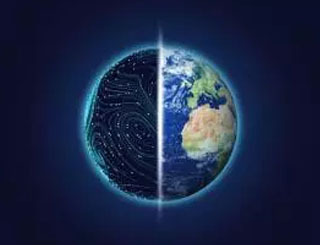Contact us for help with your samples
A Scientific Partner, Not Just a Vendor
Advancing The Environmental Mission
Maintaining accreditations, following strict guidelines, and ensuring compliance daily is no easy feat for high throughput companies like Veolia. When documentation and validation consume large quantities of time, money, and resources, you need to know that your efforts are going towards workflows that bring you success, not added worries and frustrations. This is where the value of a partnership with LECO really shines.
LECO serves as a trusted partner to Veolia by producing instruments and software that deliver fully optimized analytical solutions for the toughest research challenges. Whether you’re analyzing waste, water, or fuels, our solutions are backed by top-tier, personalized support to ensure your workflows achieve optimal performance. This collaboration goes beyond instrumentation—it’s a shared commitment to ecological transformation.
Mission Partners
Veolia‘s mission to “resource the world” by providing solutions for water, waste, and energy management, contributing to sustainability and human progress closely aligns with LECO’s mission to empower labs around the world.


Working Together
LECO provides top-of-the-line instrumentation and software for a variety of industries, including environmental and energy. Accurate, comprehensive data from easy-to-use automated instruments means that Veolia’s labs can run more efficiently than ever.
With Collaborative Vision
Veolia leads ecological transformation by improving recycling, reducing emissions, and developing innovative solutions for sustainable resource management. LECO aims to bolster that vision with direct support that is tailored to Veolia’s specific needs and goals.


Empowering Global Sustainability
LECO delivers technologically advanced solutions that are uniquely designed to support sustainability practices at the heart of Veolia’s mission. Let’s work to “resource the world” together.
Environmental Innovation Webinar
Gain Confidence in Your Results with Our Expert-Led Webinars
Join us for a presentation by David Benanou, an Expert of Analytical Research at Veolia in France, and hear about all the exciting work LECO and Veolia are currently partnering on to advance environmental research.

PRERECORDED WEBINAR | JANUARY 29, 2026 | 10:00 AM EST +5GMT
Inside the Partnership: How Veolia in France and LECO Drive Environmental Innovation
Speaker: David Benanou
A Relationship that Spans Industries and Miles
Making the decision on who to trust with your important analyses is not easy. When your brand’s reputation is on the line, you need to know that whoever you partner with is going to have the integrity and ability to keep up with your needs, no matter where you are. LECO is a current provider of analytical laboratory equipment for global environmental leaders, including Veolia, supporting water treatment, waste management, and energy projects with unmatched analytical precision. Their trust and continued partnership are a testament to our ability to provide results that ensure compliance and sustainability globally. Watch the video below for a testimonial on LECO instruments being used by Veolia in France.
“LECO’s TOFMS enabled us to detect emerging contaminants in real-time, ensuring compliance and protecting public health” -Global Water Management Firm
David Benanou – Expert Analytical Research | VEOLIA RESEARCH & INNOVATION
Trusted by Scientists. Proven by Time.
Beginning in 1936, LECO set the standard for precise and efficient analytical chemistry. For nearly 90 years now, we’ve worked to solve the toughest analytical challenges in labs around the world—from revolutionizing carbon analysis in steel to pioneering breakthrough solutions with NASA personnel. When technicians simply say “run it on the LECO”—that’s the sound of a lab with a complete trust in its data, built on millions of accurate analyses.
Years advancing sustainable science
Instruments analyzing water, waste, air
Labs supported globally
Scientists and lab personnel supported annually
Uncovering Insights for Environmental Challenges
Tackling the world’s most complex environmental samples requires deep insights, precise measurements, streamlined workflows, and timely support. Read below to see how our instruments perform when put to the test with applications like yours.
LECO’s solutions ensure compliance with global regulations, supporting Veolia’s operations across North America, Europe, Asia, and beyond.
Water
PFAS detection in drinking water and wastewater
Wastewater Sludge
Wastewater and sludge characterization
Waste-to-Energy Fuels
Biofuel and waste fuel characterization
Air Quality
Air quality monitoring for energy facilities
Soil Analysis
Soil characterization solutions
Fossil Fuels
Characterization solutions for fossil fuels
Battery Materials
Characterization solutions for battery materials
Building the Future
Empowering Veolia’s Environmental Mission
We recognizes that waste, water, and energy management are essential to everyday life. LECO’s advanced analytical instruments support this mission by providing precise insights into material composition and quality. At LECO, we’re not just experts in the supply and support of scientific instrumentation — we’re an innovation partners, helping current and future generations advance the goals of decarbonizing, depolluting, and resourcing our world. Together, LECO drive innovation toward a cleaner, more sustainable future.

Pegasus BTX
GCxGC–TOFMS non-targeted analysis of complex environmental matrices. Ideal for water, waste, and air samples in sustainability workflows.
CHN828
Accurate CHN analysis of refuse-derived fuel (RDF), solid recovered fuels (SRF), and biomass fuels for energy applications.
2nd Green Analytical Chemistry Workshop | February 2-3, 2026
At the Heart of the Green Revolution: Innovations and Practical Applications
Discover remarkable advancements in analytical chemistry, like chromatographic analyses using only water, electrophoresis techniques with near-zero chemical consumption, and revolutionary extraction methods without toxic solvents.

Organized by David Benanou with LECO and other partners
Empowering Results Blog

Automating Better Water: The TGA and Water Treatment
Clean, safe water is a cornerstone of life itself, and the ability to properly process and treat wastewater is a key component in environmental preservation. As such, water treatment plants such as Veritas S. p. A (Veneziana Energia Risorse Idriche Territorio Ambiente e Servizi) are a critical part of water infrastructure, and the analytical methods they use are a critical part of water treatment.

Using Precise Temperature Differentiation to Determine Total Organic Carbon
In the pursuit of more sustainable and regenerative agricultural practices, understanding and managing soil health has become a top priority. As farmers and researchers increasingly adopt practices like cover cropping, reduced tillage, and compost…

The Future of Environmental Analysis Begins with Sample Preparation
Sample treatment is central to accurate environmental analysis, especially for emerging contaminants like microplastics and PFAS. Traditional methods often generate significant waste, prompting innovation in more efficient and environmentally friendly approaches such…
